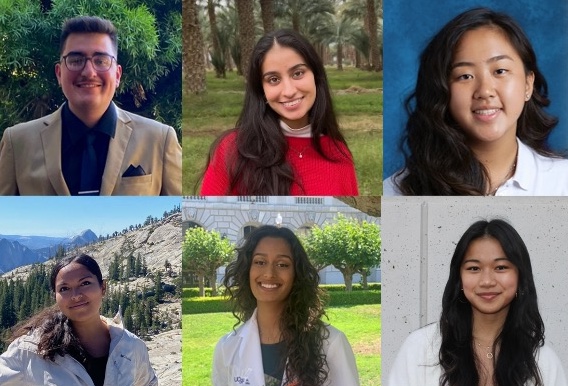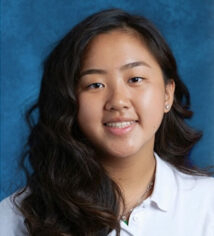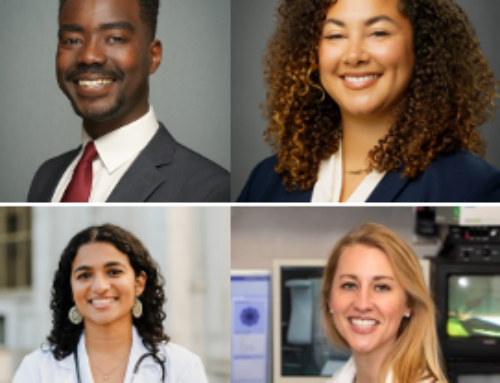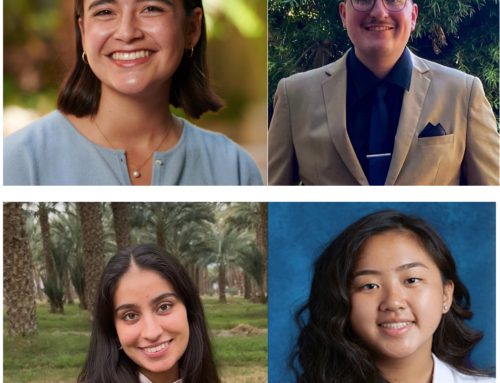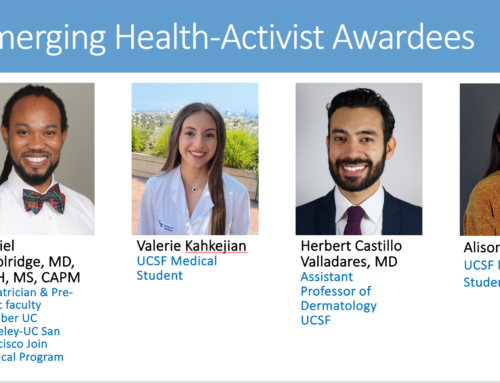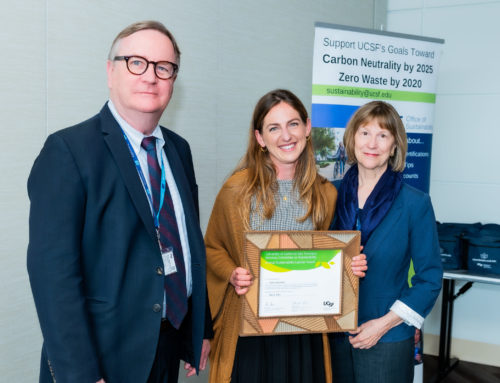FEBRUARY 5, 2025
We are thrilled to welcome our 2025 interns Sabrina Spatny, Daphney Saviotti-Orozco, and Shivangi Goswami! And we say thank you, farewell, and best wishes to our amazing 2024 interns Miguel Mercado, Navreet Purewal, and Kelly Lin.
We asked our outgoing interns what they valued most about their experiences and where they plan to go next. We are so proud of their achievements and grateful for their important contributions. Also, we asked our incoming interns to share some of their inspiring learning goals. We hope you will enjoy their responses below as much as we do!
Given the current attacks on our federal programs to support public health and environmental justice, we see our support of emerging health professionals and their career goals to be more important than ever. SF Bay PSR provides our interns with project mentorship, and experiences in policy advocacy, communications, and nonprofit administration—giving them the support and encouragement needed to become our next health-activist leaders.
Please take a moment to read about SF Bay PSR’s inspiring interns and consider GIVING HERE to support the Dr. Tom Hall Student and Young Professionals Fund! Through this fund SF Bay PSR is able to offer paid yearlong internships, our Emerging Health-Activist Awards financially supporting rising leaders in health advocacy, and our Emerging Health Professional Project Micro-Grants.
“As a retired physician, I know firsthand how vital hands-on experience is for shaping the next generation of health professionals. Supporting the Student and Young Professionals Fund means ensuring that passionate, talented individuals—regardless of financial barriers—can gain the experience they need to become the future leaders in our field. Investing in them is investing in the future of healthcare.” Dr. Mary Williams, SF Bay PSR board member
We are thrilled to announce that this year, we will have TWO Environmental Health Interns working with us!
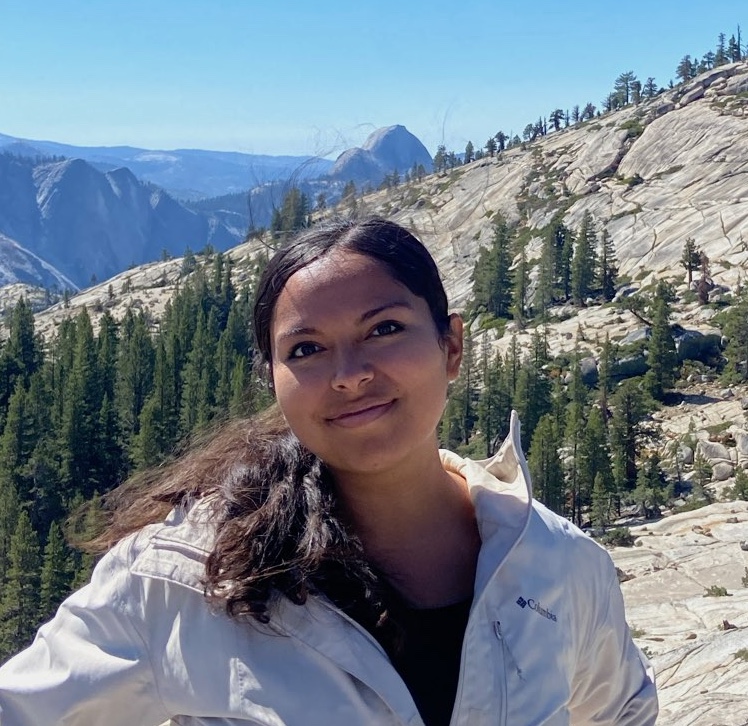 Welcome to 2025 Environmental Health Intern Daphney Saviotti-Orozco!
Welcome to 2025 Environmental Health Intern Daphney Saviotti-Orozco!
Daphney completed her bachelor’s degree in Integrative Human Biology at UC Berkeley. Growing up next to the Phillips 66 refinery in Rodeo drove Daphney’s interest in environmental health. As a first-generation Chicana, Daphney is passionate about serving marginalized communities, and she hopes to be a physician one day to serve populations burdened by socioeconomic and environmental hardships. While at UCB, she combined journalism with advocacy in her undergraduate career by publishing articles on air pollution. She also has a background in natural history and forestry. Daphney is excited to learn more about environmental health!
Learning goals: “It’s rare for me to see what it’s like to combine medicine with environmental health—so to be in this space will be incredibly impactful! I’d really love to learn about policy, which will equip me with necessary knowledge to advocate for my community. I’d also love to learn more about outreach techniques, and ways to creatively visualize the burdens of environmental hazards.”
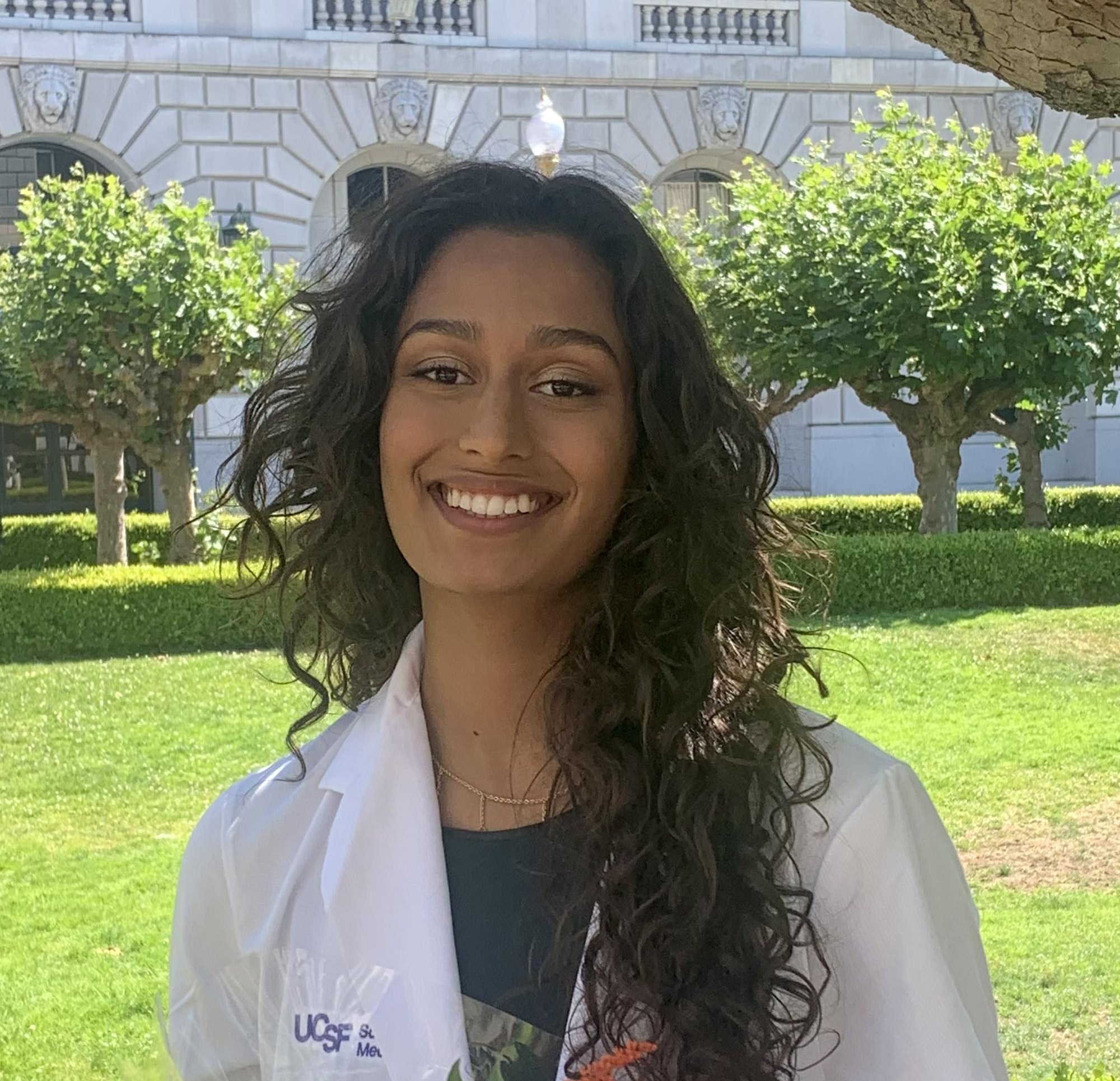 Welcome to 2025 Environmental Health Special Projects Intern Shivangi Goswami!
Welcome to 2025 Environmental Health Special Projects Intern Shivangi Goswami!
Shivangi is a second-year medical student at UC San Francisco Medical School with a background in Physiological Sciences and Food Studies from UC Los Angeles. Growing up in the Central Valley, surrounded by both agricultural and oil industries, she developed an early awareness of the interconnectedness between planetary and human health. This realization sparked her interest in how local communities are impacted by these forces, leading her to engage in community-based research and advocacy around health equity and food justice. After college, she expanded her advocacy work to addiction medicine, where she further developed a passion for clinical care. As a physician in training, Shivangi is now focused on amplifying community voices—both within the clinic and through the broader lens of environmental policy. In her free time, she enjoys connecting with the outdoors, whether she’s getting tossed around on a surfboard or just photosynthesizing in a park on a sunny day.
Learning goals: “I’d like to learn more about the frameworks and legislative processes that shape environmental policy; develop skills in translating community concerns and experiences into policy recommendations or advocacy efforts; build relationships with mentors who can guide me in incorporating environmental advocacy and policy work into a career as a physician; and contribute to research clarifying the role of environmental hazards (i.e. pollutants, pesticides, endocrine disruptors) on reproductive health and/or inflammatory conditions.”
We are thrilled to announce our 2025 Nuclear Weapons Abolition Intern!
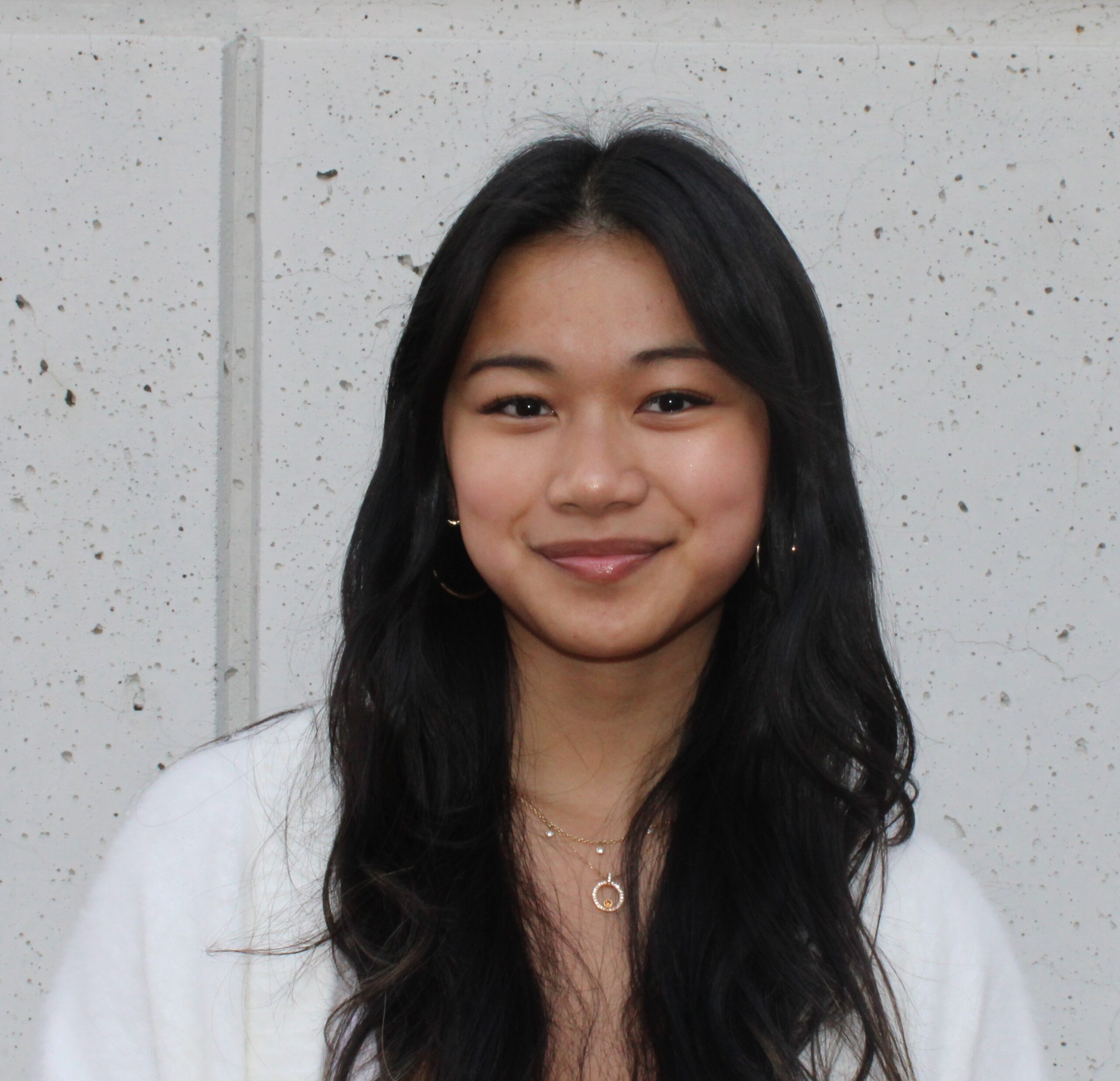 Welcome to 2025 Nuclear Weapons Abolition Intern Sabrina Spatny!
Welcome to 2025 Nuclear Weapons Abolition Intern Sabrina Spatny!
Sabrina will graduate in May with her bachelor’s degree in Public Health and Molecular & Cell Biology from UC Berkeley. As the course coordinator for UC Berkeley’s core public health 116 course, Sabrina has experience organizing public health education initiatives, coordinating with speakers, and managing team logistics. She is also an intern at the Center for Effective Global Action where she supports center-wide operations while learning more about global health research in low- and middle-income countries. Sabrina’s interests include public health education, program management, community health, and health equity.
Learning goals: “I look forward to gaining a deeper understanding of how nuclear weapons policy intersects with environmental health. I hope to learn how professionals can influence policy to drive systemic change. I would like to develop skills needed to grow as a leader in public health program management and learn the inner workings of a nonprofit.”
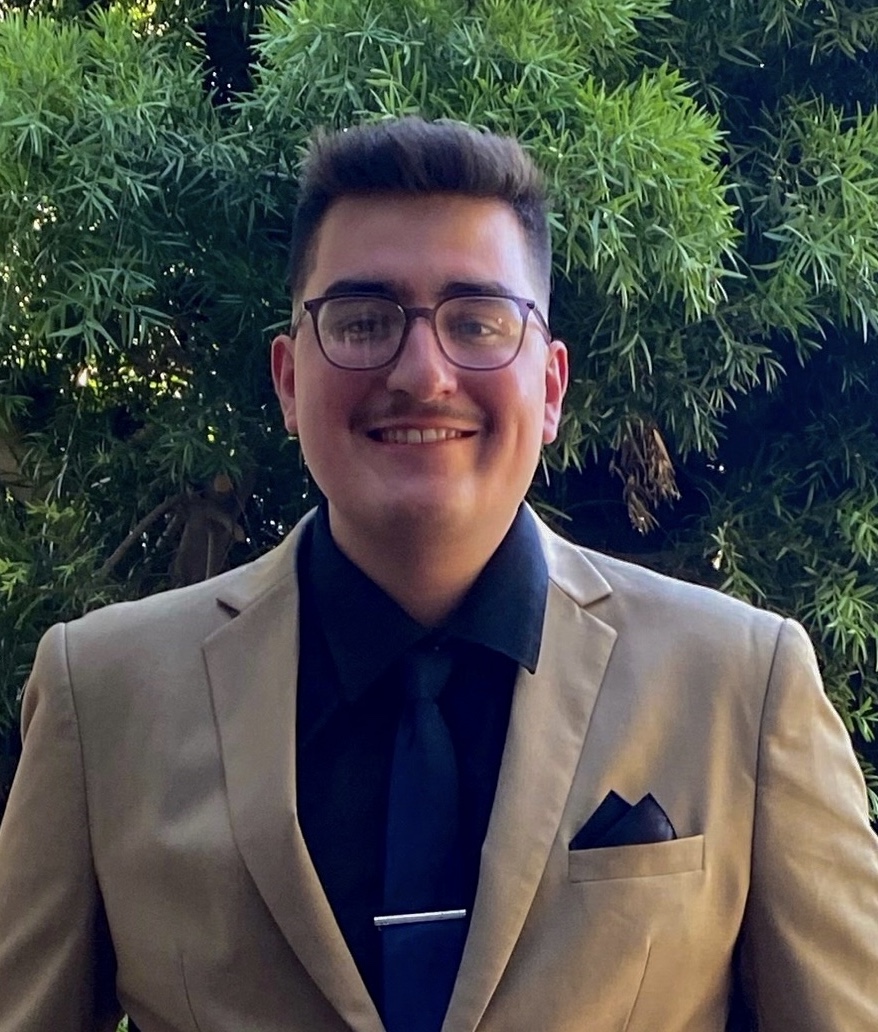 Farewell to our 2024 Environmental Health Intern Miguel Mercado!
Farewell to our 2024 Environmental Health Intern Miguel Mercado!
During my internship, I learned the importance of collaboration across different organizations and sectors. Building relationships with others working toward similar goals allows for stronger, more unified advocacy efforts. I also realized how easy it is to support other organizations’ initiatives; even simple support, such as signing onto a letter, can make a significant impact. The more signatures and endorsements an initiative receives, the more visibility it gains, demonstrating to decision-makers that the issue matters to many people. Additionally, I learned the value of tracking initiatives and maintaining detailed records. Keeping organized documentation ensures continuity in advocacy efforts, strengthens accountability, and helps measure progress over time.
I hope to attend law school and specialize in environmental law. My goal is to work closely with my community, fighting for their right to clean air and holding polluters accountable. In five years, I envision myself as an environmental attorney, using legal tools to push for stronger environmental protections and advocate for policies that address environmental injustices. I want to ensure that marginalized communities, who are often disproportionately affected by pollution, have the legal support they need to demand change. Through litigation, policy reform, and community-driven advocacy, I hope to contribute to a more just and sustainable future.
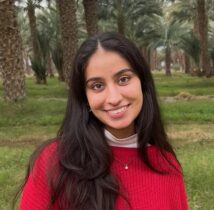 Farewell to 2024 Nuclear Weapons Abolition Intern Navreet Purewal!
Farewell to 2024 Nuclear Weapons Abolition Intern Navreet Purewal!
Reflecting on my internship with PSR, I am proud of the invaluable lessons I’ve gained. Co-organizing the Silent Fallout screening with my fellow intern, Kelly Lin, was a transformative experience that taught me how to unite communities to confront painful truths. Silent Fallout, an award-winning documentary, explores the devastating impacts of radioactive fallout from 101 above-ground nuclear tests conducted by the U.S. government. Organizing this screening taught me how to engage youth, foster meaningful discussions about historical injustices, and inspire advocacy for change. Planning the screening event taught me the power of storytelling in advocacy and how much we stand to learn from the past. Hosting documentary filmmaker Hideaki Ito and researcher Mayela Gillan created an environment rich with dialogue and the questions from the audience showed how deeply people care when given the platform to connect on critical issues. I learned how advocacy is about sharing stories that inspire and mobilize folks to action.
Second, I discovered the importance of all the behind-the-scenes work! My role also involved managing the NWAC listserv by adding and removing members, tracking relevant information for agendas, coordinating meeting schedules, and hosting Zoom meetings. This included sending timely reminders, taking detailed meeting minutes, and ensuring effective communication within the team. Understanding workflows, strategic event planning, and organizational structures is essential because even the most powerful movements can fall without a strong foundation. These skills are the foundation of any successful movement and help turn passion into real-life change.
Lastly, this internship immersed me in a community of diverse voices within the social justice field. Meeting people with fascinating careers and life paths, all united by a drive to create change, was inspiring. Listening to folks collaborate, debate, and strategize showed me the true meaning of collective action. I learned that the strength of advocacy lies in the connections we build together and in our shared commitment to making a difference in the world.
Five years from now, I hope to be a physician who not only advocates for my patients within hospital walls but also fights for humanity beyond them. I aspire to be a strong voice in social and political spheres, standing up against injustices and championing human rights globally. Working with NWAC has deepened my understanding of how medical professionals can influence public awareness, national policies, and global issues. It’s fueled my passion to combine medicine with advocacy, ensuring that my work contributes to a healthier, more just world. We stand to learn so much from the past, and I am committed to carrying those lessons forward in both my medical career and activism.
Farewell to 2024 Nuclear Weapons Abolition Intern Kelly Lin!
One of the most valuable aspects of my internship was learning about the Radiation Exposure Compensation Act (RECA) and the experiences of the New Mexico Downwinders while co-planning our Silent Fallout movie screening with my fellow intern Navreet. Before this, I was only vaguely familiar with the long-term health impacts of nuclear testing, but through research and event planning, I gained a deeper understanding of how nuclear policies have disproportionately harmed certain communities. Learning about the advocacy efforts to expand RECA, especially from those directly affected, reinforced the importance of legislative action in addressing historical injustices.
Another key takeaway from my internship was seeing firsthand how physicians can be activists. Often, the role of healthcare professionals is seen as purely clinical, but this experience showed me how physicians can leverage their expertise to advocate for systemic change. Whether it was through engaging with policymakers, educating the public, or mobilizing communities, I was inspired by how physicians could use their platform to influence health-related policies. This, in turn, motivated me to think more critically about how I can integrate activism into my own career, particularly in the realm of health justice and policy advocacy.
Lastly, I greatly valued the opportunity to strengthen my writing skills, particularly in analyzing and tracking legislative policies related to nuclear abolition. Keeping up with evolving policy discussions and understanding how different legislative measures impact affected communities required me to break down complex legal language into digestible information. This skill is incredibly important in health policy work, and I appreciated the chance to refine my ability to communicate policy issues effectively.
In the next five years, I hope to gain work experience in health policy while also engaging in global health initiatives. I am particularly interested in working on policies to improve Medicare and Medicaid, as well as exploring the intersections of health policy, health management, and international public health efforts. Eventually, I may pursue a PhD in Community Health or Global Health to deepen my expertise and contribute to research, policy development, and healthcare system improvements that address health inequities on both a national and global scale.
* * *
PLEASE GIVE to the Dr. Tom Hall Student and Young Professionals Fund!
Every gift helps!
GIVE HERE, thank you!
SF Bay PSR’s paid internships, our Emerging Health-Activist Awards, and Emerging Health Professional Project Micro-Grants are supported by the Dr. Tom Hall Student and Young Professionals Fund that was started with a generous bequest by Dr. Tom Hall, professor of epidemiology and global health leader. Dr. Hall was a member of the SF Bay PSR Board of Directors for decades and a strong advocate for ensuring medical and public health students receive support and mentorship to engage in creating a healthier planet.
Your contribution to the Fund enables us to support and help train future health professionals to work for peace and environmental justice!
THANK YOU!
